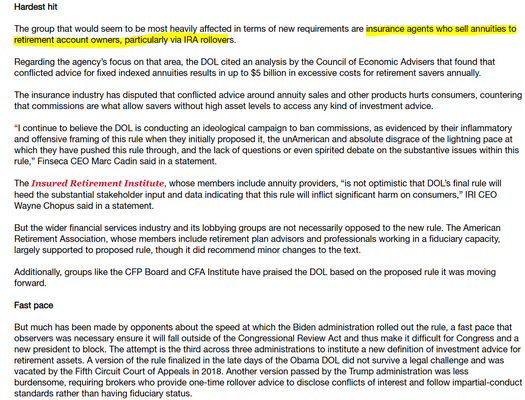- 4,590
Looks like it is official. New rules effective September of this year from the DOL. I have not seen all the nitty gritty, but article says those most impacted will be insurance agents (annuity) when it involve rollovers from employer plans, etc.
Not sure if it now requires new & updated CE like previous Suitability & Best interest versions. Also, not sure if compliance departments will have to modify the existing questions on application regarding assets, etc.
Stay tuned, I am sure more to follow.

 www.investmentnews.com
www.investmentnews.com

Not sure if it now requires new & updated CE like previous Suitability & Best interest versions. Also, not sure if compliance departments will have to modify the existing questions on application regarding assets, etc.
Stay tuned, I am sure more to follow.

DOL's new fiduciary rule is out
The new fiduciary rule today is out, an overhaul of a 1975 regulation that the insurance industry has fought tooth and nail.



